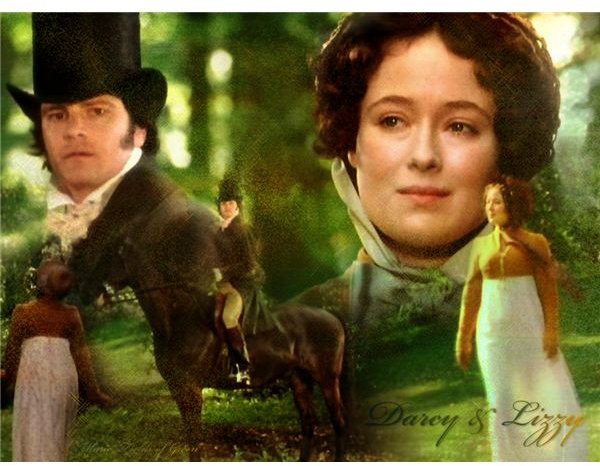An Analysis of the Marriages in Pride and Prejudice
Going to the Chapel…Gonna Get Married
Back in Austen’s era for women marriage was not just an option it was a necessity. Women did not have any power if they were not married, and they could not inherit land. Thus, the Bennett family who only had women were at the mercy of whomever would marry off their daughters. Because they were viewed as a transferrable commodity many things had to fall into place for a woman to be married- looks, talent, abilities, money and social status.
Elizabeth herself criticizes this very limited way of thinking early on in the book when she is with Darcy. Thus, we see that marriage being the only way out of a situation causes several witty observations on marriage.
Marriage as an Escape Clause
For Charlotte, even though she does not love passionately, she cannot see any other way to get out of the state which she is in presently. As she herself puts it : “I’m twenty-seven years old, I’ve no money and no prospects. I’m already a burden to my parents and I’m frightened. So don’t you dare judge me Lizzie. Don’t you dare! "
Charlotte is able to escape the worst and most unimaginable status – a lonely spinster – and places all her hope in a loveless marriage. Although it lacks romantic glimmerings, it is perhaps one of the healthiest marriages in the novel. When Elizabeth visits them in the estate, she sees how truly happy Charlotte has become. Although her cousin remains a blithering fool, Charlotte is the type of woman who can be submissive and content in that role.
Marriages Saves Reputations
When Lydia runs off, blindly in love and risking not only her reputation but her family’s, Wickham is bribed so he will marry Lydia. Essentially if you analyze this more carefully it paints a brutal picture. The Bennett’s main concern is not Lydia’s happiness, nor their own for that matter, but a way to save their reputation. This is even more severely reprimanded as the spinster role and this is the Fallen Woman. Not only is her tarnished image contagious and poisonous but it would severely harm the other Bennetts as well. When they marry all is wiped under the carpet and little is thought of how Wickham goes essentially unpunished for his wrongdoing and is even rewarded for it.
Arranged Marriages
Some thoughts are given about arranged marriages which are only determined by social status and which then can greatly determine the fate of their lives. Catherine de Bourgh is an oppressive figure who will stop at nothing to marry off her daughter with Darcy. Because she has wealth and social status she is not demeaned and criticized like Mrs. Bennett.
Although they seemingly want their daughters to be married Catherine uses deceit and manipulation to achieve her means. Little is known of her daughter in the novel. She is almost nonexistent, and we do not even know if she has any interest in Darcy. She is symbolic of women, and their role in marriage. They have little power in the situation and must be at the mercy of their parents and potential suitor….even when she has accumulated wealth to protect her.
Marriages overcoming obstacles
Darcy and Elizabeth are at the centre of the issues of marriage in the novel. It is only when they overcome their obstacles they are able to see things in a clearer way. Elizabeth must come to accept who he is and he must accept her " limitations”
“Miss Elizabeth. I have struggled in vain and I can bear it no longer. These past months have been a torment. I came to Rosings with the single object of seeing you… I had to see you. I have fought against my better judgment, my family’s expectations, the inferiority of your birth by rank and circumstance. All these things I am willing to put aside and ask you to end my agony. “
Marriage and Courtship
A final word on marriage comes through the way courtship has a key role in obtaining marriage. This is exemplified in Jane Bennett. Most of the misunderstandings between the couple occur from her repressed and “shy” feelings which are an overt criticism of the repressed sexuality and ambiguous nature women had to exude at the time.
All in all, Austen gives a strong message of women and their lack of power, as well as keen observations on the role of marriage as a reflection of the sociological implications of the society they lived in.
This post is part of the series: Pride and Prejudice Study Guides
Read this series to know all about Pride and Prejudice!
